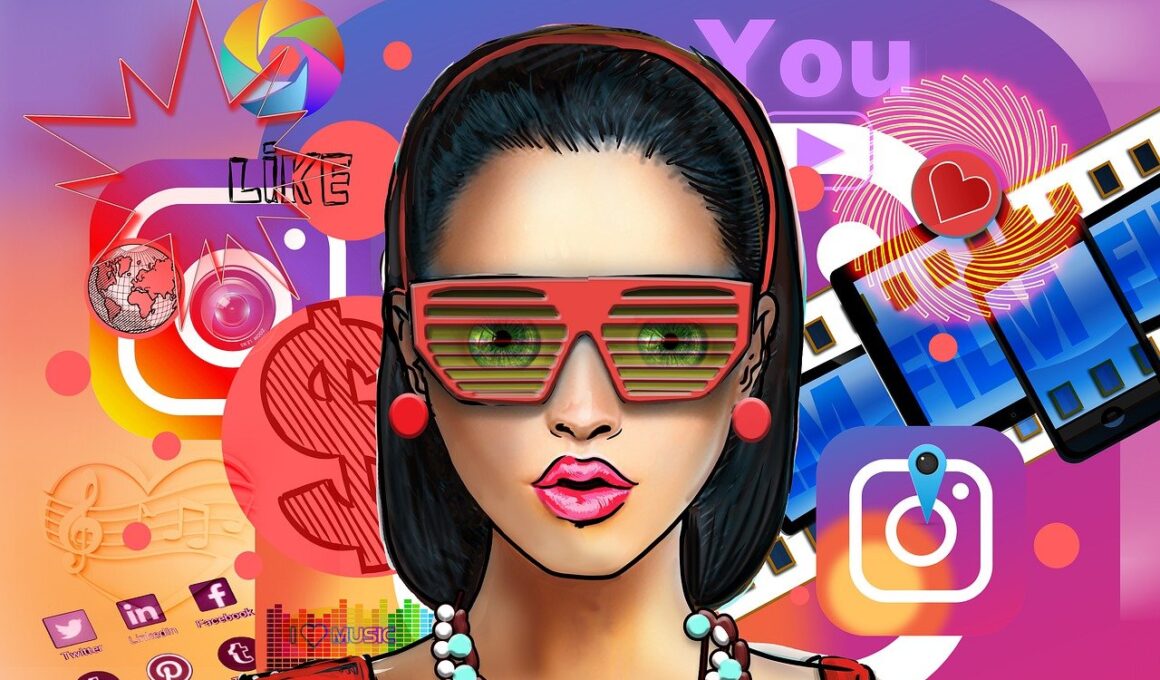Trends Shaping the Future of Influencer Outreach in B2C Marketing
In recent years, the landscape of B2C marketing has dramatically changed due to the rise of social media and digital platforms. Businesses are increasingly recognizing the importance of influencer outreach as a key strategy to connect directly with their target audience. More brands than ever are investing in partnerships with influencers to leverage their reach and authenticity, which has become a primary tool for boosting visibility. By understanding consumer preferences and behavior patterns, marketers can effectively select influencers who resonate with their brand ethos and mission. This direct connection fosters trust between consumers and brands. As we move forward, brands will look to innovate their strategies by utilizing advanced analytics to measure campaign success and engagement rates. Influencer marketing not only has increased customer interaction but also generates higher conversion rates. Additionally, organizations are beginning to diversify their influencer partnerships to include micro-influencers, who often boast authentic interactions and loyal followers, to improve ROI. This shift highlights the evolving nature of marketing and the necessity for brands to stay ahead of trends. Addressing these critical components will be vital for effective outreach strategies.
Understanding the role of technology in influencer outreach is essential for B2C marketing professionals. With advancements in artificial intelligence and machine learning, brands can identify suitable influencers with greater precision. AI can analyze vast amounts of data, allowing marketers to quickly assess audience demographics, interests, and engagement levels. This increased efficiency enables businesses to tailor their marketing messages more effectively, ensuring they reach the right consumers at the right time. Furthermore, technology facilitates the monitoring and measurement of influencer campaigns, providing real-time insights on performance metrics and audience feedback. By adopting such innovative tools, brands can improve their outreach tactics while fostering meaningful relationships with influencers and their followers. It is crucial for brands to prioritize authenticity and transparency in these partnerships, as consumers increasingly demand genuine connections. The integration of technology also opens up new methods of content creation, allowing influencers to utilize various formats like live streaming or interactive polls on platforms such as Instagram Stories. This not only enhances engagement but also encourages audience participation in the promotional process. Establishing these relationships through technological means sets the groundwork for a successful influencer marketing campaign in the future.
Another significant trend shaping influencer outreach strategies is the increasing emphasis on long-term partnerships over one-off campaigns. Brands are realizing that building sustained relationships with influencers can lead to more compelling storytelling and brand loyalty. Influencers who consistently represent a brand create a narrative that resonates more authentically with their audience, ultimately driving higher engagement rates and brand recall. Effective influencer collaborations go beyond mere product placements; they involve integrating a brand’s values into the influencer’s content seamlessly. This deeper level of collaboration enables influencers to create rich, engaging content that instills trust among their followers. Potential challenges, such as maintaining genuine representation, can arise; however, brands are learning to navigate these complexities through open communication and cooperative strategies. Moreover, long-term partnerships foster a sense of community among consumers, enhancing brand awareness. As consumers increasingly engage with brands that reflect their values, fostering these genuine connections becomes crucial. In essence, brands need to tailor their outreach efforts to identify the right influencers who align with their missions and goals to develop these rewarding partnerships that can yield substantial results.
The Importance of Diversity in Influencer Outreach
Diversity in influencer outreach is becoming more pivotal to B2C marketing strategies as brands seek to connect with wider audiences. A diverse influencer pool can highlight different cultural perspectives and engage various demographic segments, which is essential in today’s multicultural society. Representation matters, and brands that partner with influencers of different backgrounds can resonate more deeply with a broader audience. Such inclusivity not only helps in breaking down stereotypes but also encourages consumer engagement across various platforms. Selecting diverse influencers enables brands to tell more authentic stories, showcasing real-life experiences, which fosters trust and relatability among consumers. Additionally, marketers need to focus on identifying influencers who align with their values and understand the social aspects that guide consumer behaviors. Inclusive marketing can significantly enhance brand reputation and foster a positive image. As B2C marketers refine their outreach strategies, developing campaigns that prioritize diversity will be crucial to sustaining relevance. Consequently, brands will need to pay attention to the dialogues happening across social channels and adapt their messaging accordingly. Adopting these practices will undoubtedly contribute to a brand’s success and customer loyalty.
User-generated content (UGC) is also transforming influencer outreach in B2C marketing. Engaging customers as brand ambassadors, rather than merely relying on traditional influencers, creates an interactive community that thrives on shared experiences. By encouraging consumers to create content around their products, brands benefit from authentic testimonials and organic reach, which are invaluable in today’s marketplace. UGC fosters a sense of belonging and loyalty among customers, who feel their voices matter in the brand’s narrative. Brands can amplify user-generated content by integrating it into their marketing strategies, showcasing actual client experiences and feedback. This approach not only increases engagement but also builds trust with potential customers. Businesses can incentivize customer participation through contests, hashtags, or featured stories on social media, encouraging more users to contribute their unique insights. Consequently, the impact of UGC strengthens brand identity and confirms that happy customers can become powerful messengers. Establishing a culture around customer contributions enhances brand visibility and can lead to viral interest in products or services. Embracing UGC as an integral part of influencer outreach will allow brands to form deeper connections with their audiences.
In conclusion, the future of influencer outreach in B2C marketing will be shaped by the combination of authenticity, technology, and diverse representation. As brands work to differentiate themselves in an oversaturated marketplace, understanding the importance of genuine connections with influencers is crucial. Companies should prioritize building long-term relationships with these digital ambassadors, focusing on the power of storytelling and shared values. Moreover, the integration of advanced analytics and AI will revolutionize how brands identify, assess, and measure influencer partnerships, resulting in more targeted marketing strategies. While influencers have become key players in shaping consumer behavior, marketing professionals must remain adaptive to shifting trends, such as user-generated content and the importance of diversity in outreach efforts. By embracing these changes, brands can foster trust and loyalty among consumers, positioning themselves for sustained success. Ultimately, businesses that innovate and respond to the evolving landscape of influencer marketing will be best equipped to engage their audiences meaningfully. As the world moves toward a more connected digital future, influencer outreach strategies must evolve accordingly to thrive amidst constant change.
The Road Ahead for Influencer Outreach
Looking ahead, the road for influencer outreach in B2C marketing will continue to evolve, emphasizing the necessity for brands to remain adaptable and progressive. As consumer behaviors change and the digital landscape shifts, marketers will be challenged to develop innovative strategies that align with emerging trends. Enhancements in technology will likely lead to greater personalization in influencer collaborations, enabling brands to tailor their campaigns to individual preferences and behaviors. Furthermore, potential challenges, such as regulatory scrutiny on influencer marketing and the rise of disinformation, will require brands to approach outreach with transparency and responsibility. Cultivating strong, authentic relationships will be critical in navigating these situations effectively, ensuring that influencers remain trusted voices in their communities. As brands shift focus towards sustainability and social responsibility, aligning with influencers who reflect these values will strengthen their outreach efforts. Ultimately, being responsive to the evolving expectations of consumers and embracing the diversity of voices in influencer marketing will be fundamental for success. Brands willing to innovate and adapt to these changes will navigate the complex landscape and emerge as leaders in influencer outreach.


